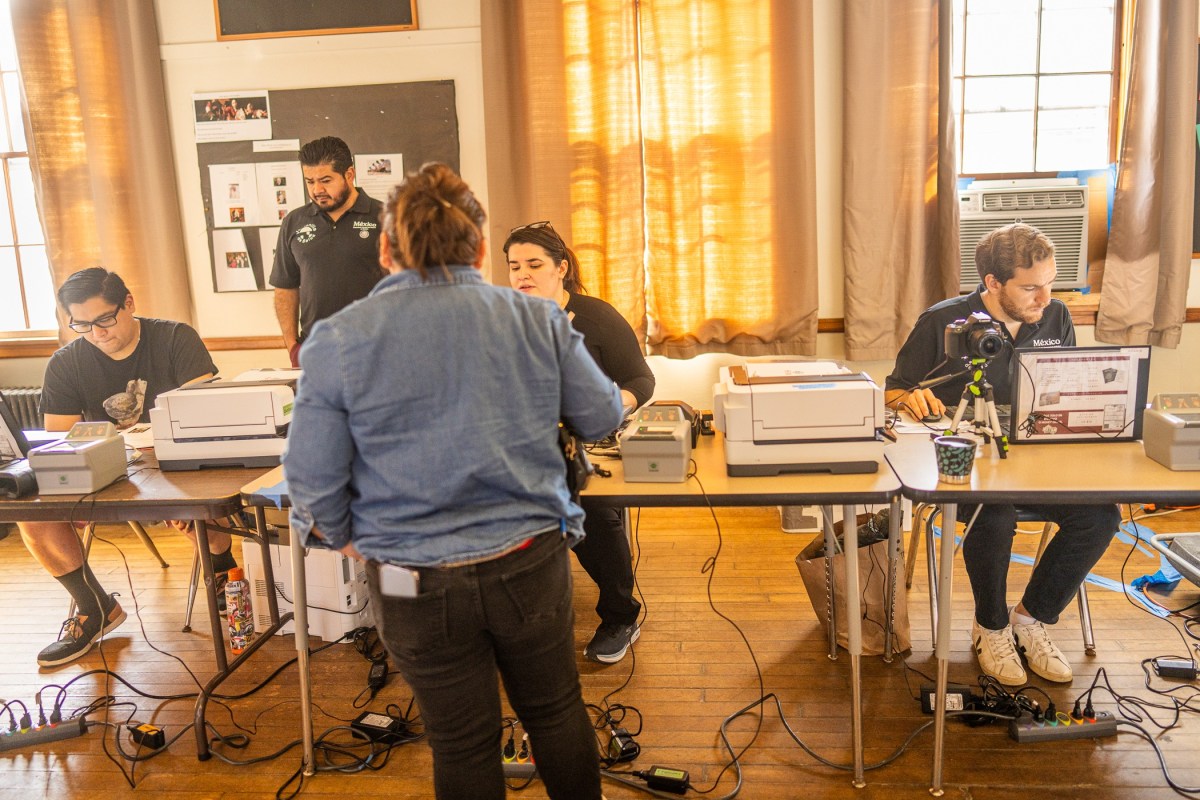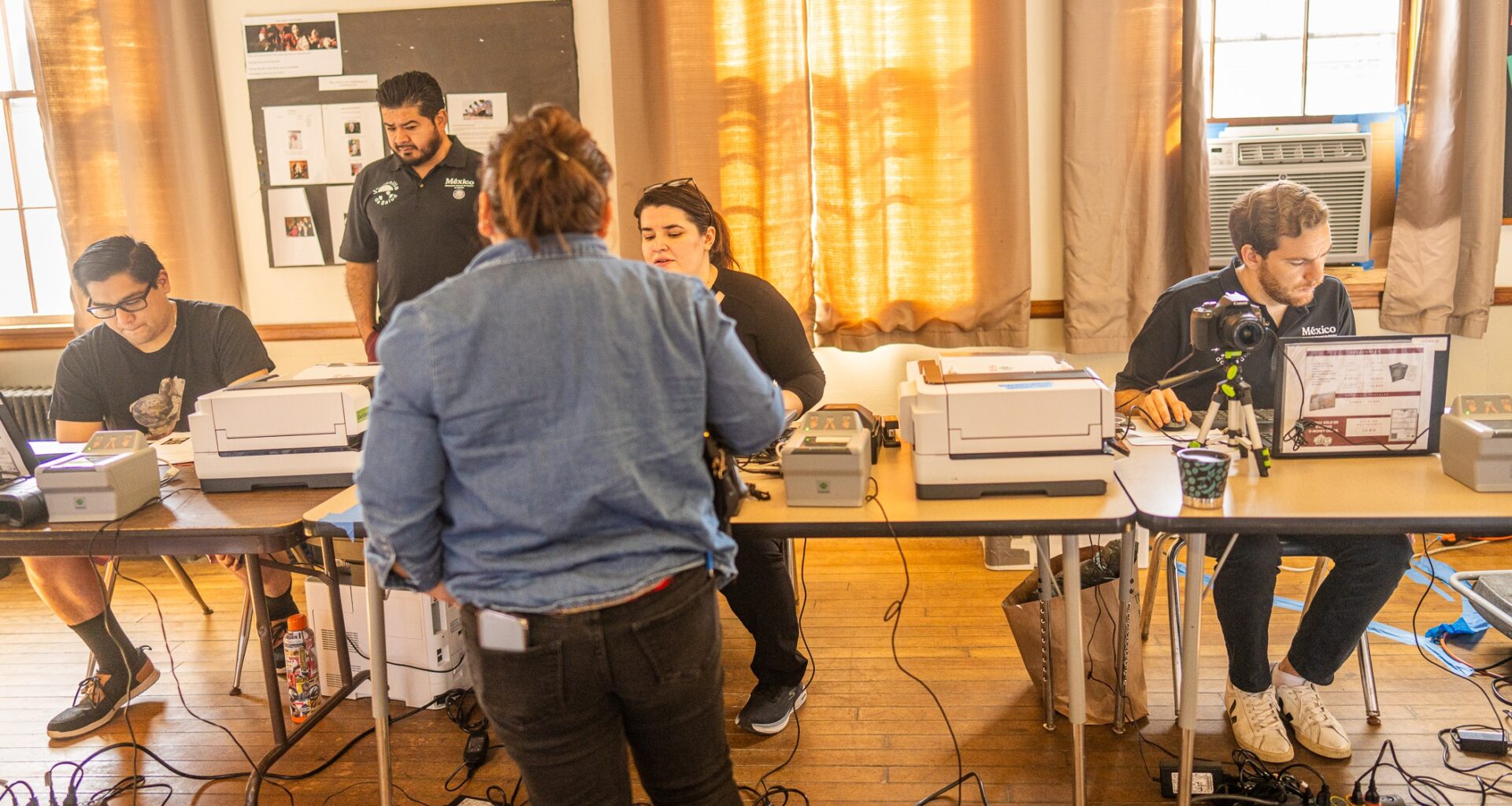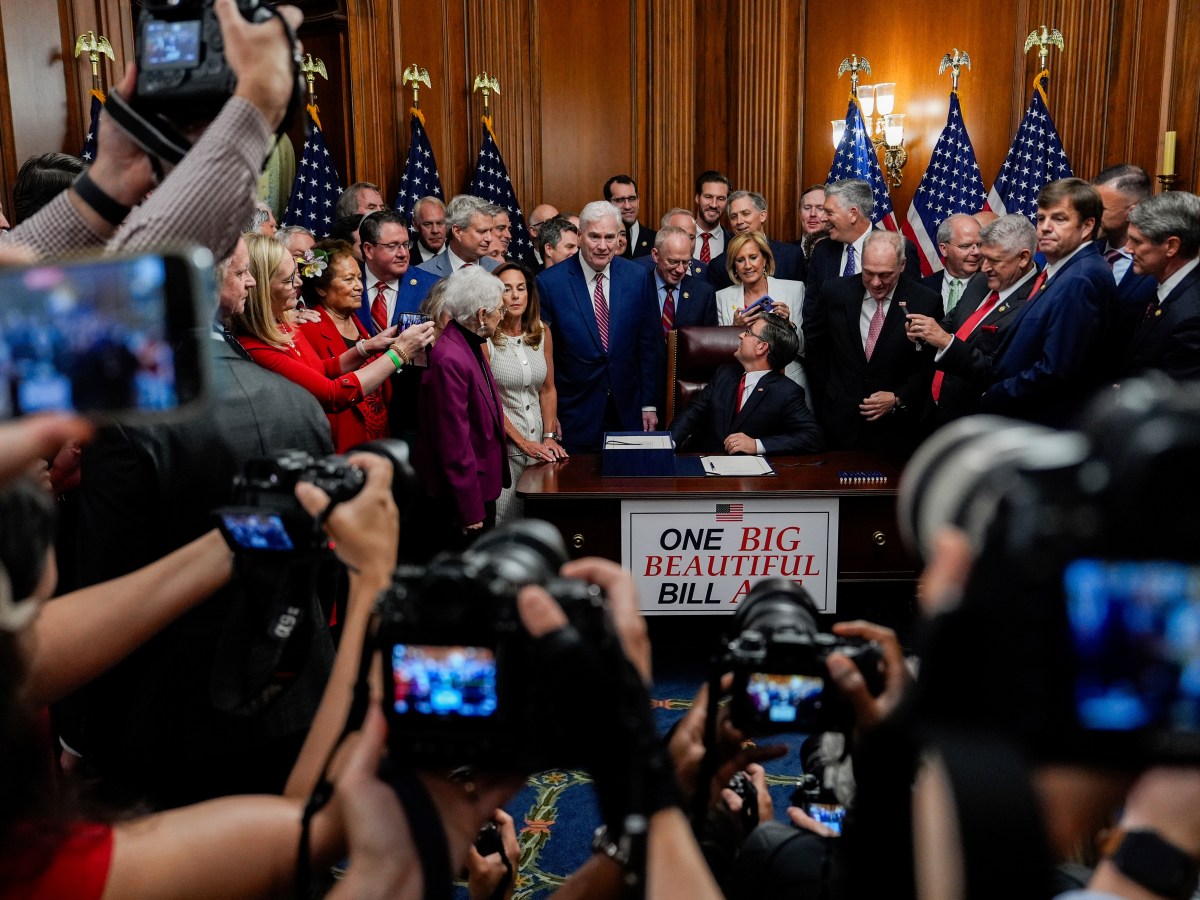 Staff from the Mexican Consulate assist with documents at Christ Church in Montpelier on Saturday, June 21. Photo by Terry J. Allen/The Bridge
Staff from the Mexican Consulate assist with documents at Christ Church in Montpelier on Saturday, June 21. Photo by Terry J. Allen/The Bridge
Medicaid cuts and other elements of the “Big Beautiful Bill Act” will restrict access to health insurance for noncitizens in Vermont in 2025 and 2026.
Even though some noncitizens will avoid the worst impacts, the confusion alone could inhibit them from accessing care, people working to provide health care for immigrants say.
“There’s a lot of Vermonters with a whole range of different immigration statuses, and they are the people who are putting on our roofs and helping milk our cows,” Mike Fisher, Vermont’s health care advocate, who helps people navigate the health care system, told VTDigger. “It’s so disheartening to see an attack on their access to health care.”
State health officials shared their predictions of how many immigrants will lose health coverage in the next year and a half, even as they emphasized that the exact implications of the latest federal cuts are still unknown. Medical providers and advocates helping immigrants access health services told VTDigger they’re already seeing patients eschew care due to the bureaucratic complexity and fear of the Trump administration’s federal immigration enforcement. Advocates predict the health system’s administrative burden will only become worse in the months ahead.
In a hearing with legislative leaders last week, Jenney Samuelson, secretary of the Vermont Agency of Human Services, shared the state’s latest predictions on the scope of the federal cuts impacting immigrant health care.
She said an estimated 100 undocumented residents who have been in the country fewer than five years are slated to lose health insurance premium assistance on Jan. 1. The state also expects 400-500 refugees, asylum seekers and nonlegal residents to lose the same assistance at the turn of the year, she said.
READ MORE
Between 500 and 600 Medicaid enrollees who are asylum seekers or refugees are expected to lose eligibility in October 2026, Samuelson told lawmakers.
The increased administrative burden associated with the “Big Beautiful Bill Act” will make it more difficult for noncitizens to access health care, said Naomi Wolcott-MacCausland, program coordinator of the Bridges to Health program, which helps migrant workers access health services.
“Health insurance can be really complicated for anybody, regardless of whether you speak English or don’t have access to the internet,” she said in an interview, and the federal changes will only add to those challenges.
A patchwork of federal and state programs allow some noncitizens with a range of immigration statuses to receive health care.
In Vermont, the Immigrant Health Insurance Plan allows pregnant individuals and young people not otherwise eligible for Medicaid to enroll in health insurance.
But many immigrants go without coverage.
One barrier to insurance, according to Wolcott-MacCausland, is that it is challenging for many immigrant workers to estimate their incomes because industries like agriculture or construction can boom or bust due to uncontrollable factors like weather.
As the “Big Beautiful Bill Act” causes health insurance subsidies to shrink or disappear altogether, Wolcott-MacCausland said, the changes will disproportionately affect immigrants and those with variable incomes. She said she already sees many workers on temporary visas who are eligible for insurance choose not to enroll due to concerns that their fluctuating income will lead them to owe more money than they expect.
Federal cuts to services for noncitizens are not the only changes in Washington, D.C., affecting access to health care. Wolcott-MacCausland said increased federal immigration enforcement is causing people to fear going to the doctor.
“People are delaying care that can in turn result in them being at a really costly emergency department visit,” she said.
Open Doors Clinic, a free clinic in Middlebury serving uninsured and under-insured local residents, including migrant and immigrant workers, is seeing fewer new patients, according to Julia Doucet, the clinical and program director. She said she is also seeing patients who are choosing to return to the countries where they were born.
While health workers are already seeing people change their behavior, the full scope of new federal policies is still coming into focus.
“We’re trying like everybody else to understand impacts as the changes are coming down,” Wolcott-MacCausland said. “There’s a lot of unknowns.”

